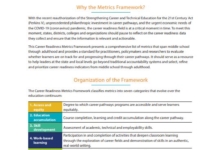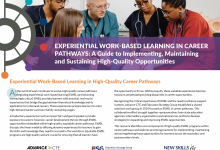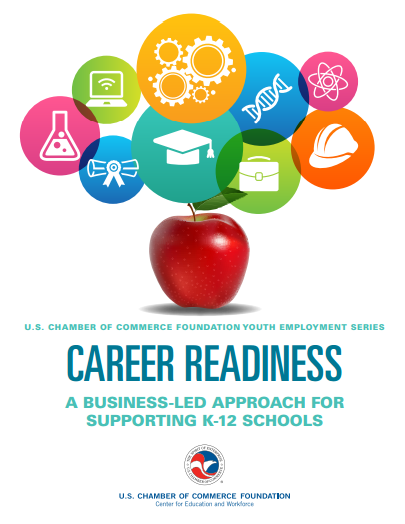The Every Student Succeeds Act (ESSA) prescribes academic indicators for state accountability systems, but also allows states the flexibility to select a nonacademic indicator of school quality. One option currently under consideration by many states is an indicator of career readiness, which would provide a statewide signal of how well schools are equipping students with the skills they need in the workforce.
This paper from the U.S. Chamber of Commerce Foundation explores different approaches for measuring career readiness and defines the role that employers can play in this process. The paper identifies the intersections between college and career readiness, proposing a more advanced “College Ready Plus” indicator that evaluates students’ postsecondary preparation using measures such as work-based learning and attainment of an industry-recognized credential. Finally, the paper offers five recommendations for employers to help states adopt and implement a career readiness indicator:
- Managing Employer Requirements and Engagement.
- Managing High-Quality Work-Based Learning.
- Tracking the Attainment of Industry-Recognized Credentials.
- Endorsing Districts and Schools That Meet Employer Requirements.
- Evaluating State and District Performance.







